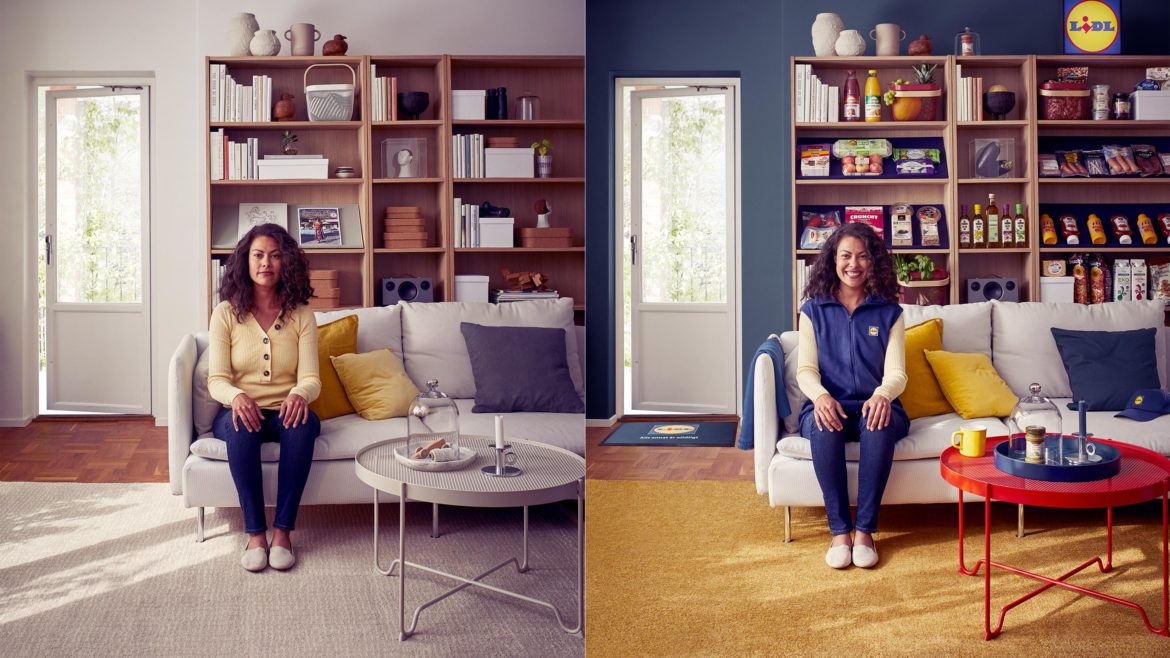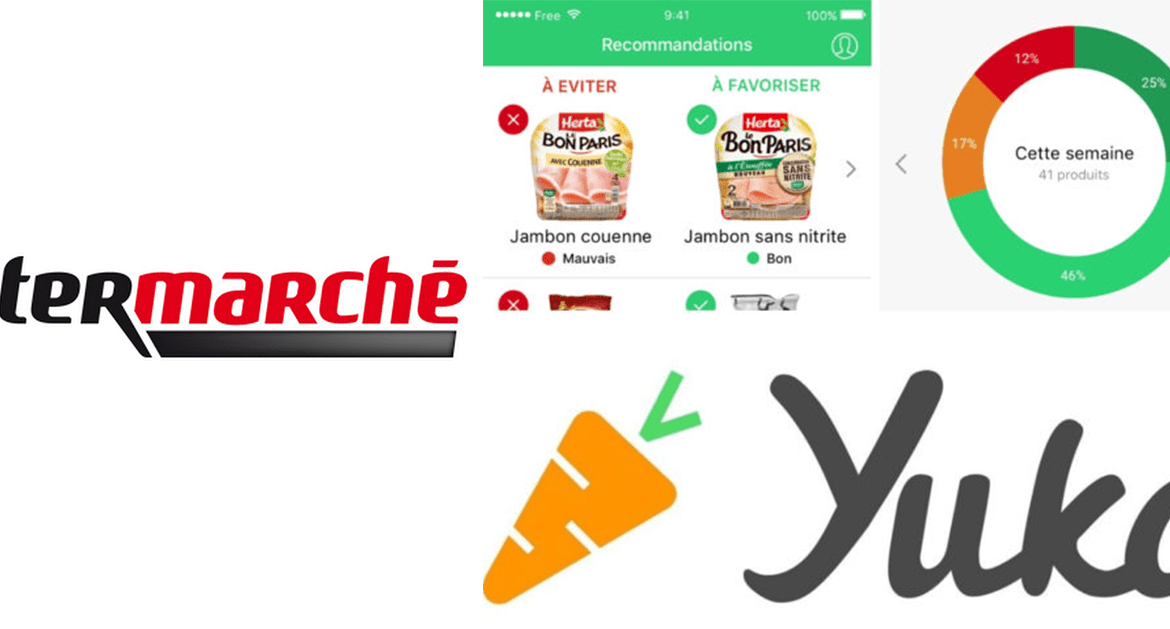In France, as everywhere else in the world, physical trade has been devastated by the pandemic, due to the various lockdown measures implemented by governments. The majority of shops meeting “essential needs” (food, convenience store, etc.) have remained open, but the experience is radically different, whether from the customers’ or employees’ point of view. Numerous initiatives have emerged to provide a means of survival, or even growth, for these crippled organizations, while keeping security measures at the forefront. Let’s take a look at what these measures can implicate for tomorrow.
Safety first
With the exception of China, where most of the country seems to plan to be “let out” of isolation by the end of April, all the other contaminated countries have taken measures to contain the population and ensure citizen safety, which is reinforced by authorized businesses.
On a French government website, one can even find “practical sheets” indicating the measures to be implemented, trade by trade.
Among the common denominators and apart from the precautions applicable to all, we can point out: the complex issues of wearing masks and gloves, of establishing safety distances marked on the ground, and reducing the number of people in the stores. Moreover, making available hydroalcoholic gel, disinfecting equipment (for shopping carts, checkout mats, and so on), installing plexiglass windows at the checkouts, and rearranging certain “non covid-compatible” sections – bulk, fruit and vegetables, pre prepared food and more.
How open businesses are managed is what can be imagined for businesses that will reopen, if their cash flow allows it. How can we imagine, in a world where we have to “learn to live with the virus”, maintaining an acceptable level of security in clothing shops (fitting rooms, etc.), beauty and hair salons, not to mention the various places of entertainment and socializing (cinemas, restaurants, theatres, etc.)?
Once the wave of astonishment is over, it’s time to prepare for what comes after; shopkeepers striving to be inventive in arranging their spaces and welcoming new ways to visit and shop. For example, a clothing store “seals off ” one fitting room out of two, however as a result, they move upmarket by positioning themselves more like a showroom.
Another example is the sport world, where many techno-gaming players are thinking about initiatives which enable a real audience to virtually visit a stadium to watch a real time match.
While these initiatives remain in unchartered waters, we can note that the pandemic has led to an acceleration in brand transformation, in which the digital relay is often the first vehicle for survival.
Digital or die
The major players in the GSA have long since begun their omnichannel shift: COVID is called “the hour of truth”. Revealing that while some players are keeping up at each point on the supply chain, others only keep up under certain conditions.
Without even mentioning the experience offered to the consumer via digitalization, let’s just talk about “shopping in an alternative way”. Such as, the drive and click & collect solutions, where volumes have grown exponentially as a result of the pandemic. Companies have had to adapt: with improved stock management, an efficient supply chain, optimized job descriptions, etc. In fact, many former salespeople have been mobilized for order preparation.
In hindsight, we are tempted to say that this movement has “precipitated” the urgency to think about unified trade, regardless of the size of the company. Different applications have emerged that allow small non-digital merchants to sell online as well.
The ” authorized ” businesses are also able to accommodate service providers who operate only on the markets.
From this “first wave”, we note, particularly in France, a surge of solidarity: employee “borrowing”, mutualisation of delivery strategies, service redirection and so on. It remains to be seen what changes will survive the crisis and then what lessons can be learned.
Restore the bond: how and why?
In the end, lockdown precautions have forced a majority of the population to favor local as the primary factor in their shopping choice.
Conventional loyalty strategies no longer work in periods of confinement.
The delivery solution is also often preferred. A question will arise: how to create the preference that will allow opening, or rather reopening, one’s trade area, so that the most remote customers will return?
Some companies, particularly in the DIY and automotive sectors, have favored the implementation of “quick services” that allow customers to obtain a quick response or a rapid repair. This additional service, more fluid than in normal times, can make the difference.
The various measures taken to adapt to the customer’s needs are also popular; security, reserved opening hours, etc.
In addition, companies make massive use of content production and distribution to maintain the client bond and compete in terms of innovative brand content, to stay on the top of their game.
Will these strategies come at a cost? Or will the era be resolutely one of “convenience” in the “next world”?
We can safely assume that, at least in France, the appeal of the physical store, the contact with the salesperson, the desire to be able to discuss with a “real human” still makes the difference, versus the all-digital. It will be necessary for these brands to imagine how to reconcile user-friendliness and security in the context of a gradual recovery.
Laure Barillon, Altavia Nativ, et Thierry Strickler, Altavia Watch
https://fashionunited.fr/actualite/retail/commerces-non-essentiels-le-casse-tete-de-la-reouverture-le-11-mai/2020042123675
What Can be Learned From China as we Prepare to Open Up the Retail Sector in Canada?
https://www.businessinsider.fr/us/dark-stores-could-spread-as-nonessential-restrictions-ease-2020-4
https://www.businessinsider.fr/us/costco-walmart-target-save-lives-restricting-nonessential-items-expert-2020-4
https://www.pymnts.com/restaurant-innovation/2020/how-covid-19-is-accelerating-drive-thru-upgrades/











 Lamps, coffee tables, shelving, benches, desks… you name it, you design it! That’s basically where the appeal of Dizy, a start-up recently launched by
Lamps, coffee tables, shelving, benches, desks… you name it, you design it! That’s basically where the appeal of Dizy, a start-up recently launched by  As well as giving customers the opportunity to create their own furniture, Dizy is keen to ensure that the items created are built to last. “It’s much easier to become attached to something that you have taken the time to design and create with your own bare hands”, Mr Strickler explains. “It’s a great way to ensure that the pieces created will have a lasting place in the home, thus avoiding this idea of planned obsolescence”. The modular nature of the parts used, which can be assembled in a different way to alter the function of the object, also helps to lengthen its lifespan. In fact, 95% of the parts that Dizy uses can be reused to make other pieces of furniture (by converting a coffee table into a bookcase, for example).
As well as giving customers the opportunity to create their own furniture, Dizy is keen to ensure that the items created are built to last. “It’s much easier to become attached to something that you have taken the time to design and create with your own bare hands”, Mr Strickler explains. “It’s a great way to ensure that the pieces created will have a lasting place in the home, thus avoiding this idea of planned obsolescence”. The modular nature of the parts used, which can be assembled in a different way to alter the function of the object, also helps to lengthen its lifespan. In fact, 95% of the parts that Dizy uses can be reused to make other pieces of furniture (by converting a coffee table into a bookcase, for example).